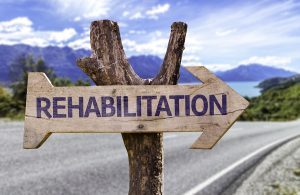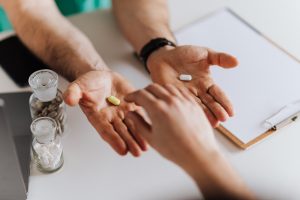When a person completes one of our drug rehabilitation programs, the recovery process does not end. The key to a successful recovery from addiction is to maintain support after completing drug and alcohol treatment. Treatment is only the beginning of a lifelong process of growth and recovery in all aspects of life where substance addiction and alcoholism have had an impact.
Weekly Aftercare for program graduates is available to provide a thorough, supportive continuum of care. Aftercare clients have typically completed one of our residential treatment programs. Clients who participate in long-term recovery activities are more likely to sustain abstinence after completing a more intensive level of therapy known as primary treatment. The AMAR Home Aftercare program consists of a weekly group led by an experienced counselor who assists clients in accomplishing the goals outlined in their continuing care plans. Aftercare is a place where customers can talk about their triumphs, setbacks, and day-to-day concerns..
NA/AA gatherings and events are also encouraged for our program graduates. An annual picnic, occasional social events, and sponsorship for new clients are among the activities of the Alumni Association. Clients, graduates, staff, relatives, and the community are all invited to participate in scheduled activities as part of the Aftercare program.
Drug Rehab: The Importance of Aftercare
Completing a residential drug rehab program can be rewarding and healing, but without effective aftercare in place returning home presents the risk of falling into old habits. Aftercare provides the security and support needed to renew and reinforce the tools and techniques implemented at Rehab Center Drug Rehab. While the journey into the real world can be overwhelming, addiction recovery is a lifestyle change and commitment that simply does not end a month’s time or so away at a residential drug rehab.
Engaging with we extensive aftercare program works efficiently with your daily responsibilities and individual and therapeutic needs and offers proven and crucial support for maintaining sobriety. Our Aftercare program offers group therapy sessions over the phone from the comfort and convenience of your own home. No need to sacrifice an entire evening driving to some location when you can pick up the phone and be connected to a welcoming group therapy session of 5 to 6 others talking with a counselor, all of whom you may already know through your time at We Are. You can also get individual counseling, or communicate with our Aftercare community through our private in-house social network sit. Our Twitter and message services send out inspirational funny and engaging tweets and messages several times a day to our Aftercare community.
Drug Testing Kits for Use in Treatment Centers
Treatment centers are crucial for providing the necessary services for the addicted to get clean. Therapists spend hours each day building a relationship with their clients in order for their therapeutic programs to work and it is vital part of their patients getting clean. Each year, millions of individuals seek out these facilities to get help so treatment centers should do everything in their power to help make sure an individual stays clean.
While treatment centers are extremely proactive in making sure their patients stay clean, far too often a patient will cave into their substance of abuse. When this happens, many facilities turn to random drug testing as a necessary aid to ensure a patient’s progress towards sobriety.
There are many benefits for drug and alcohol screening at treatment centers. First, it helps the patient and their therapist build a trust between one another. By drug testing, it shows the therapist that the patient is truly trying to get clean and likewise shows the patient that he/she is making concrete steps towards sobriety. Moreover, because of the difficulty of manipulating a test, drug testing encourages honesty between the patient and his/her outside interactions such as family, friends, employers and other loved ones.
Secondly, it aids in both the prevention of a relapse and the response of a relapse. While it helps fights the temptation of using a substance of abuse, it can also show the treatment center staff that a person is using and can therefore have a rapid response intervention to minimize the damage. This way, trained staff can help a patient as soon as possible even if he/she is not showing any signs of usage.
Lastly, drug testing at treatment centers greatly increases the accountability of the patient, aids in the prevention of drugs entering the facility, and shows quantitative progress of the patient as he/she makes their way towards sobriety.







